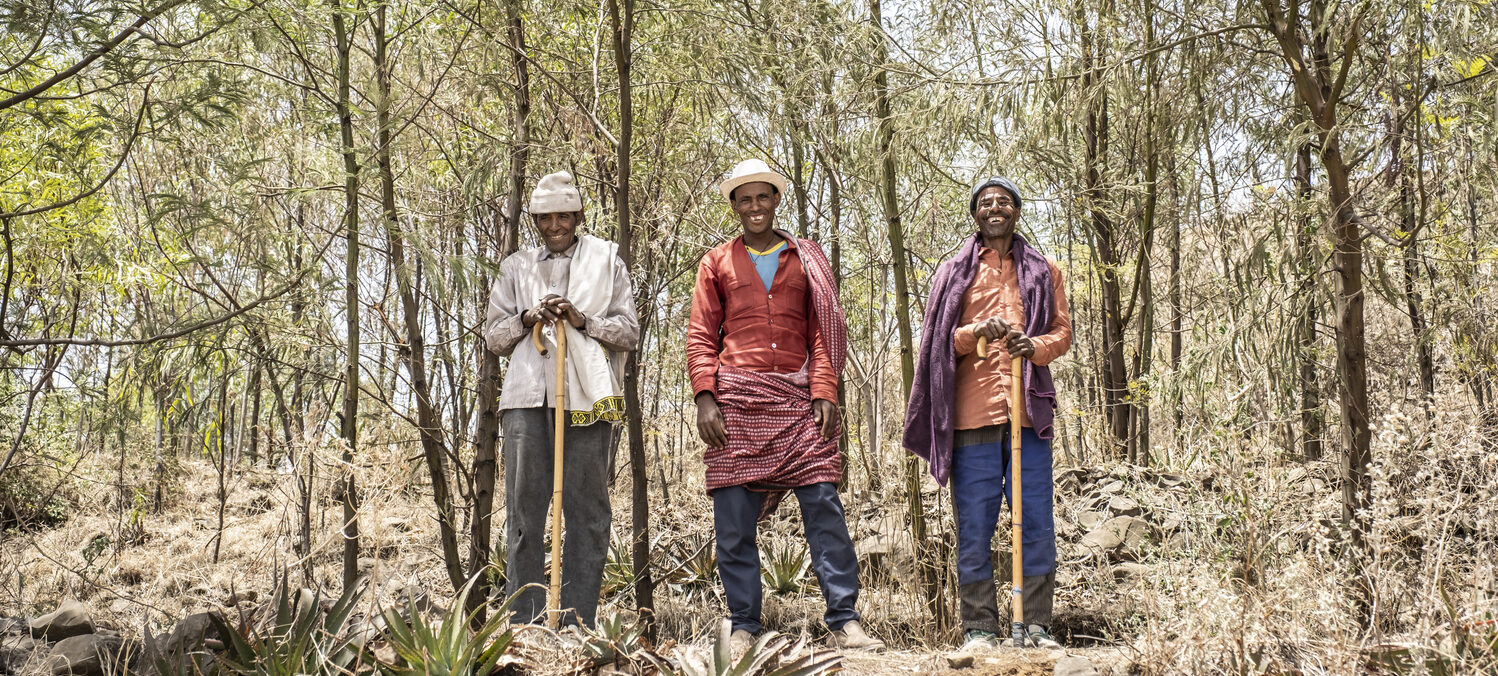
Principles governing our activities
Our values for sustainable change
At eye level
We always meet the people at eye level. That is an expression of respect, alertness and goodwill.
Our belief in the inviolability of human dignity as a central maxim of our humanitarian approach means that we face each and every individual with the same respect, and thus on an equal footing. Century-long failings in dealing with the people of Africa and the exploitation of an entire continent have resulted in constant violation of this principle of an equal footing. An imbalance right down to the smallest detail is still perceptible in the conduct of the countries of the global north vis-à-vis the global south. We constantly remind ourselves of this as a fundamental prerequisite for achieving a sustainable and successful cooperation.
Sustainable
One of the yardsticks we apply to our measures is that they must be well-founded and oriented to the long term, in order to make the population permanently independent of outside help.

We employ materials and erect structures that are designed for efficient long-term use. They should remain operational long after we have withdrawn from the project area. For example, we purchase high-quality materials for water pumps, our schools are built for at least 40 years, the WaSH committees are self-organised, and microcredit groups operate independently. We wind up our activities in the project areas after twelve to fifteen years – symbolically half a generation, the time needed for change processes to become firmly anchored in the behaviour of the people.
Demand- and results-oriented
The starting point of project work is always specific local needs. These we determine in an exchange with the local population, a process that ensures that our work is particularly effective.

We always begin with the specific needs of the people in Ethiopia. What is the actual problem and how can a solution be found to it – for these people in their home environment? Diseases may need to be combatted in different ways from in the global north, income is generated by different means, and educational methods differ from those with which we are familiar in Germany. Even the emancipation of women follows a different path than in western industrial nations. Only when the solutions respond to actual needs will they be effective. Demand- and results-orientation therefore go hand-in-hand.
Participative and autonomous
In our project work we place special emphasis from the outset on the involvement of the local population.

An exclusively ‘giving’ approach always implies asymmetry: there is a giver and a taker, creating latent dependencies. In contrast, we want to provide sustainable development aid, real help towards self-development. All our activities in Ethiopia are therefore designed to enable maximum participation of the local population, so that they will assume responsibility and develop their own models geared to their social structures. Nothing is simply donated as such, but rather enabled by the investment of time and energy by the local population. Projects and achievements are thus adopted as ‘their own’ and they learn to appreciate them.
An integrated and holistic approach
There can be no school education without clean water, no success as a farmer without know-how – only the integral interaction of our measures will foster stable development.

Measures aimed at achieving an independent life are interrelated: it makes no sense to build a school without the availability of clean water, as many children are unable to attend school due to diseases. It makes no sense to teach farmers to grow new varieties of vegetables, enabling them to differentiate themselves on the market, if they cannot do simple arithmetic. It makes no sense to treat the eye disease trachoma if hygiene standards are not fundamentally improved. Everything is linked. For this reason, only a holistic approach can be successful in the long term – measures must be closely interlinked and coordinated.